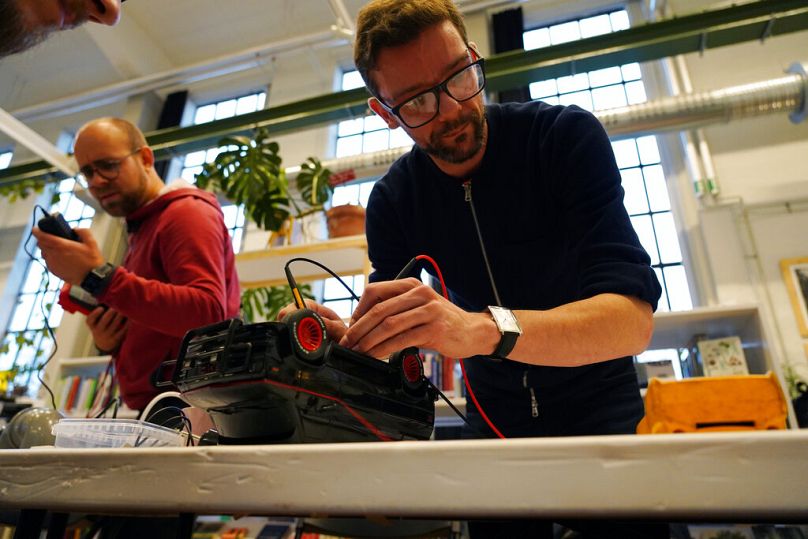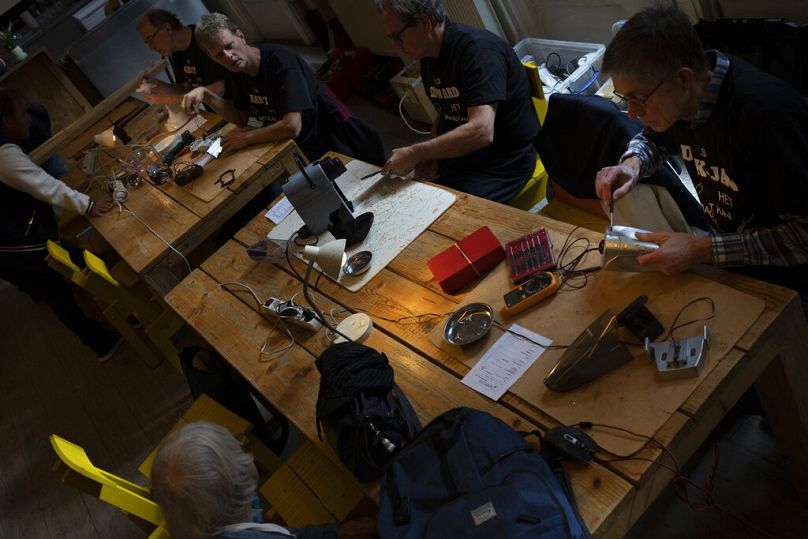If consumers can confidently trust the lifespan of their product, they will be more inclined to use them longer and less likely to be swayed into replacing them too soon, Els Bruggeman and Luisa Crisigiovanni write.
Premature product failure is frustrating, wasteful, costly, and frankly, unacceptable.
For years, consumers have been grappling with the harsh reality of early obsolescence of their products, bearing the brunt of costs and struggling with electronics that are not designed to be repaired.
Data collected from 26,000 consumers under PROMPT, an EU project aimed at developing a method to assess the longevity of products such as mobile phones, washing machines, and TVs, showed that their products broke down way before their time was up.
It also showed that the reasons for failure lay in only a handful of the same components.
In fact, empowered consumers can drive positive change in the market. It starts from the knowledge that consumers are very much bothered by products failing too soon.
But for consumers to be able to tackle this, they need to have precise information and sustainable alternatives.
It's also a matter of common sense: if people were so inclined to want their products to break so soon after buying them, they would take matters into their own hands.
A new era of sustainable product competition
First and foremost, consumers need to know the minimum lifespan of the products, so they can make an informed buying decision.
Unfortunately, today that’s not the case. In the best-case scenario, they can consider the price and, at most, the perceived quality of a product.
However, when information about the product's longevity is factored in, it could create a market that not only competes on price and quality but, more importantly, on sustainability.
This could push companies to make lasting products their unique selling point. Most importantly, it would stop manufacturers from pushing the price of short-lived products onto consumers and the environment.
Repair should be easy and attractive
Secondly, consumers need to know whether a product can be repaired.
Real choice means sustainable products that are eco-designed, designed to repair and to last long.
No more glued-in batteries or smartphone screens that can take up to 30 minutes for professionals to take apart.
No more expensive repairs or lack of spare parts. Repairing needs to become a more attractive option than replacing.
This also means longer legal guarantees and reversal burden of proof.
In March, the European Commission adopted a new proposal on common rules promoting the repair of goods called Right to Repair, establishing obligations to repair beyond legal guarantees, creating online matchmaking repair platforms, and more.
However, the fact remains that the price, which is another major barrier to choosing repair, is not tackled in the proposal.
It is one thing to guarantee the repair of products, but it will not stand if we don’t tackle the cost of spare parts and repair works themselves.
Moreover, the lack of a specific article on costs will give brands many ways of legally circumventing the rules.
Changing course from a ‘throwaway culture’ to a ‘repair culture’
The consumer psyche is something that should not be ignored. Continuous communication, information sharing, and cultural changes are needed to promote products used for longer.
However, it is evident that if consumers can confidently trust the lifespan of their product, they will be more inclined to use them longer and less likely to be swayed into replacing them prematurely.
Our desire is for consumers to have complete control over their purchasing decisions by being fully informed to choose durable products and rightfully expect them to last and last.
Imagine having washing machines that can last for 20 years or more, again.
We can work together to create a market that values durability and encourages the development of products that are built to last.
Els Bruggeman is the Head of Advocacy and Enforcement, and Luisa Crisigiovanni is the Head of Fundraising Program and EU Projects Development at Euroconsumers, a group of five consumer organisations in Belgium, Italy, Brazil, Spain, and Portugal.
At Euronews, we believe all views matter. Contact us at view@euronews.com to send pitches or submissions and be part of the conversation.














